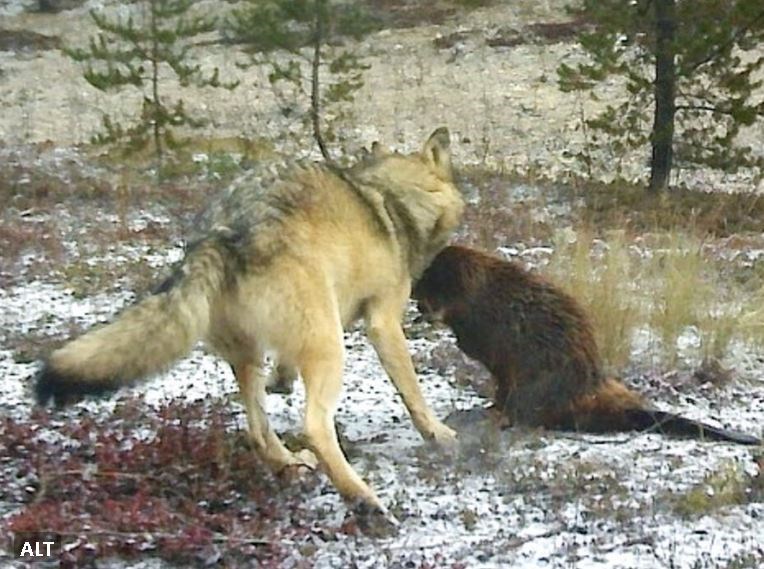VOYAGEURS NATIONAL PARK, Minn. — Beavers are well-known for their ability to alter the boreal ecosystem by building dams and taking down trees, but it turns out their main predator can also influence the trajectory of a forest.
A previous report published by the Voyageurs Wolf Project showed how patient wolves can be when waiting to ambush beavers on their trails.
Now scientists connected with the northern Minnesota-based project have found that wolves disproportionately hunt and kill beavers where the rodents have strayed farther from their lodge to get food and building materials.
This, in turn, can modify the foraging behaviour of beavers, discouraging them from expanding their territory and thereby keeping more of the boreal forest intact.
Results of a years-long study in the park were published recently in Proceedings of the Royal Society B.
The researchers gathered their data by tracking the travel patterns of wolves collared with GPS devices, studying images taken by remote cameras, conducting aerial surveys, and doing on-site investigations.
The study has caught the attention of the New York Times, which recently published an article that stated this research answers the question "What happens when an apex predator meets – and eats – an ecosystem engineer?"
Tom Gable leads the Voyageurs Wolf Project, and collaborated on the study with colleagues from the University of Minnesota and University of Manitoba.
"Beavers' actions are very obvious, right? You can see them. You don't have to do a study to measure how they dam the wetland or cut down a bunch of trees. Wolves are playing a different role by basically preventing beavers from altering certain habitats. In this study we show that because wolves are preventing beavers from going farther inland to cut trees, wolves are themselves influencing the trajectory of forests," he told TBnewswatch in an interview.
The study team examined beavers' foraging trails, how long they were, and how often wolves were successfully hunting them.
They found that the predators were essentially shaping beaver foraging behaviour by ambushing and killing them when they ventured farther from the water.
"If wolves were not present, beavers would almost certainly go further inland, and they would [therefore] impact and change more forests," Gable said.
In the case of the Voyageurs National Park ecosystem, it's roughly estimated that the predation success of wolves on longer trails was probably influencing the composition of 23 to 47 square kilometres of forest, or 1.4 per cent to 2.9 per cent of the total forested area.
By constraining beavers from cutting trees farther inland where they are more vulnerable, it's a logical conclusion that beavers will consume all the available resources closer to their lodge sooner than they might otherwise, thereby forcing them to relocate more often than they would otherwise have to.
Gable pointed out, however, that this theory wasn't tested in the recent study.
It's not clear yet how the team's findings might ultimately be put to practical use, whether it be in the management of forests, wolves or beavers.
"You know, people have asked me, 'Is this saying wolves are doing something bad or good?' My response is, basically, it's neither. All we're doing is kind of describing the way the natural world works," Gable said.
He said this kind of work is personally satisfying because he has an intense curiosity to understand the natural world, and the interaction between wolves and beavers has received little attention.
"It helps to fill this broader understanding of the role of these species in the ecosystems they exist in...We think this is valuable information, just to be aware of how these species interact with one another."
